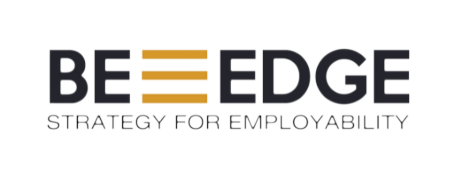
J.Ivy as Researcher
I hold two doctorates: Ph.D. in Psychology (Social and Developmental) and a Ph.D. in Management (Strategy, Entrepreneurship, and Innovation).
I prefer pragmatism as an epistemology.
The case method is my favorite research method.
The interaction of psychology, strategy, pragmatism, and case method resulted in my creating the BE-EDGE instrument to craft a personal strategy for boutique/built-in employability.
My first Ph.D. is in Psychology, I have written on the topic “Reflection of Significant Choices of Graduates.” In a nutshell, I compared graduates’ should do, would do and wouldn’t do criteria for making professional and personal choices and revealed five patterns graduates follow in building their storylines.
I tested the relevance of these five patterns with groups of young people who faced their “what’s next?” choices, and with groups of accomplished professionals. My studies, again and again, have proven that internal dialogues of our should do, would do and wouldn’t do work as assessment for our mindfulness. They also help us elucidate our focus and maturity as investments in our personal capital.
While psychology equipped me with the science behind mindfulness and ownership in elucidating people’s core, I felt the science of making choices also needed a “strategy side” in order to connect our choices to our outer environment — market players and opportunities around us.
Psychology of Personal Capital

Strategy of Social Capital

My second Ph.D. is in Management (Strategy, Entrepreneurship, and Innovation). While earning my degree, I studied social capital and stakeholder strategic relationships in low-trust vs. high-trust contexts.
For the low-trust environment, I arrived at a list of six strategies and two mechanisms for developing trust and investing in social capital in an environment, where we have not yet established personal connections.
For the situations, in which trust is high but competition among trusted players is intense, I revealed four dimensions of affecting an entity’s ability to capitalize on social capital and distinguish itself from others. I tested this mechanism in the context of donor loyalty, commitment, and support for a small, highly trusted but powerless club. We achieved a tenfold increase in donations and a fivefold increase in volunteer involvement within one year.
I concluded that social capital is a powerful strategic instrument with mechanisms and dimensions that we apply differently in unfamiliar or low-trust contexts, and in high-trust but competitive contexts.
Finally, even as a researcher, I was most interested in outcomes and finding ways to apply my research results for making a difference.
I prefer starting my research with a real-life challenge (vs. filling a gap in academic literature) and use design thinking for working on the challenge. In my work, success is defined by clients, students, employers, and other stakeholders (vs. other academicians in regular research).
The ability to stay focused on a client’s dilemma, be attentive to a client’s context and apply design thinking to resolve it constitutes the third component of my formula for boutique employability. I call it professional capital: investments in generating value that is practical and appreciated.
Pragmatism of Professional Capital

The Case Method

I use the case method for my research, I write and publish business cases, and I coach my students to use the case method for their consulting projects.
I have learned that the case method allows us, first, to mindfully choose a project to work on. It lets us apply storytelling to connect with an organization’s insiders with empathy for and an understanding of the dilemma that the person is currently working on. It lets us analyze the story through the prism of our acquired knowledge and to apply design thinking techniques to provide a practical solution that will be appreciated.
I found that the case method not only connects research and practice and makes a real difference for companies we do a case for, but it also helps a case writer to establish a presence in the industry — as a person who understands real issues, relates to contexts, develop relationships, and solves problems. The case method also leverages personal, social, and professional capital in order to excite the market — the fourth element of the formula of boutique employability.
Case consulting thus provides a perfect vehicle for people at the “what’s next?” stage in life to use to establish a presence in the industry they have elucidated as residing at their professional core.
From Research to BE-EDGE
It works. It lets us craft our own, boutique, employability that is built on our unique mix of KNOWLEDGE, ABILITY AND PASSION.


